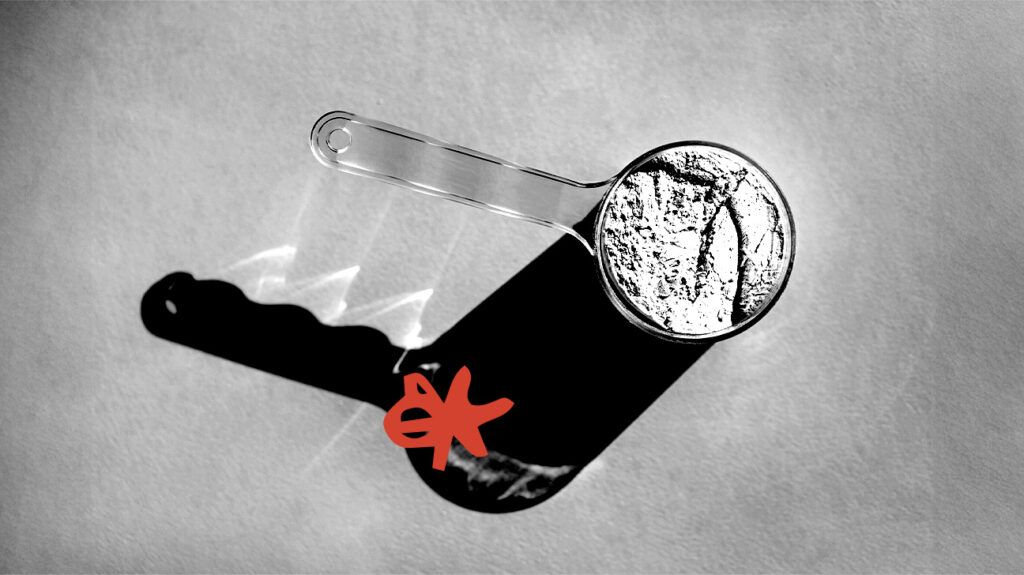Creatine may not directly affect weight loss, but it may help improve performance, endurance, and recovery with exercise.
The body produces creatine naturally in the liver, pancreas, and kidneys. The body stores creatine and uses it during physical activity to provide energy to the muscles. People can also get creatine from dietary sources, such as meat and fish, or creatine supplements.
People may take creatine supplements to improve physical performance, stamina, or recovery from sports or training. Some may also take them to support weight loss while maintaining muscle mass.
This article discusses why people take creatine supplements, how creatine affects the body, and whether it offers any benefits for weight loss.

People
Bodybuilders may use creatine to support certain phases of their training and preparation for competition. Creatine is one of the most common nonhormonal supplements bodybuilders use.
Cutting is a training phase bodybuilders may use before a competition to decrease body fat and increase muscle definition. During cutting, people reduce their calorie intake but maintain a high protein intake.
Bodybuilders may use creatine during the cutting phase, as it may increase the physical results of resistance training.
Creatine may indirectly help with fat loss during cutting. According to a 2021 review, creatine may improve the capacity to exercise at high intensity.
This may mean people can exercise for longer and increase the results of training, such as muscle growth, mass, and strength. Increased exercise intensity and duration may help promote fat loss and increase muscle mass.
Other research suggests creatine may aid weight loss. A
The research analyzed 19 studies with 609 participants. In adults 50 years or older, creatine supplementation with resistance training led to greater fat loss compared to a placebo with resistance training.
However, another
According to a
The body stores glucose in the body as glycogen, which is important to aid recovery after exercise. According to a
Other potential benefits of creatine may include:
- helping reduce muscle damage, soreness, and inflammation after intense training
- increasing tolerance to intense training, including exercising in the heat, which may reduce related injuries or illnesses
- experiencing fewer injuries and recovering more quickly from injuries for athletes taking creatine
It is worth noting the authors of the 2021 article did receive funding from creatine manufacturing companies.
Possible side effects of creatine include:
- weight gain due to water retention in the muscles
- muscle cramps
- dehydration
- diarrhea
- nausea
- seizures
It may not be safe to take creatine while trying to lose weight or during activities in which people are dehydrated.
There are different forms of creatine available, but creatine monohydrate may be the best option as it is the most widely studied and affordable type.
Research suggests people can generally tolerate creatine supplements well, particularly if they follow the recommended doses of
Who should not take creatine?
According to the American Academy of Orthopaedic Surgeons (AAOS), there is a lack of long-term research into whether taking creatine is safe, especially in children and adolescents.
For this reason, the AAOS does not recommend children or adolescents take creatine supplements. People should also avoid taking creatine if they are pregnant or breastfeeding.
The long-term health effects of creatine supplementation are unknown, including its impact on organs or interactions with other supplements or medicines. People with kidney problems should not take creatine.
There is little evidence to suggest any risk of moderate creatine supplementation in people with typical kidney function.
Physical activity and fitness resources
Visit our dedicated hub for more research-backed information and in-depth resources on physical activity and fitness.
Does creatine reduce appetite?
There is no evidence to suggest creatine reduces appetite. Some possible effects of creatine may indirectly impact appetite, though, such as increased energy use or dehydration.
Does creatine affect sleep?
Creatine may reduce the negative effects of sleep deprivation. A
Why can you not drink alcohol while taking creatine?
Creatine may cause dehydration, so taking it with other dehydrating substances, such as alcohol, may not be safe.
A 2019 study using mice found that creatine supplementation worsened liver injury caused by ethanol. The researchers require further data on the effects of alcohol and creatine supplements in humans.
The body naturally produces creatine, and people can also take it as a supplement.
Research does not show a significant link between creatine and weight loss. However, it may indirectly impact weight because it may help increase endurance and recovery with exercise.
People should talk with a healthcare professional before taking creatine supplements, especially if they have existing health issues.
